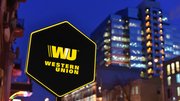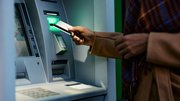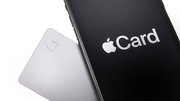News
No bank account, no problem
While direct deposit has helped companies reduce the expense and hassle of paying employees, it isn't an option when workers don't have a bank account. CashLynk, a program offered by Lynk Systems, creates benefits similar to direct deposit for both employer and unbanked employee.
December 27, 2001
Employers love direct deposit. And why shouldn't they? According to the National Association of Clearinghouses, direct deposit offers a potential savings of $1.25 per paycheck including time and material savings.
And many employees, who don't want to waste their lunch hours standing in line at the bank or worry about losing a paper check, also appreciate direct deposit.
But not every employee signs up for direct deposit. Some choose to remain unbanked, leery of financial institutions because they've had bad experiences. Others have trouble applying for a checking account because of credit problems.
Atlanta-based Lynk Systems, an electronic funds distribution solutions provider, has developed CashLynk, a sort of combination direct deposit-debit card system for employers with unbanked employees.
The benefit to the employer is the same as direct deposit: no lost checks and lower payroll costs. In addition to standard payroll, employers can use CashLynk for incentive payments, bonuses, promotions, cash advances and reimbursements.
"It's a complement to direct deposit," explained Jerry Uffner, Lynk's director of retail card products. "We don't touch their direct deposit. If a company says they have 50 percent direct deposit, we want the other 50 percent."
The CashLynk card allows employees to participate in direct deposit without opening a bank account. It also gives them the same kind of purchasing power as a more traditional ATM/debit card.
CashLynk cardholders can use their cards (which, depending on the partner, look like a Visa Card, MasterCard or other PIN card) to make withdrawals at any ATM that displays the PLUS, PULSE, MAC, STAR or NYCE logos. They can also use CashLynk to make long distance phone calls and to make purchases at merchants with PIN-based point-of-sale systems displaying the PULSE PAY, MAC, STAR, NYCE or INTERLINK symbols.
Cardholders must pay any ATM convenience fees assessed by the machine owner. And Lynk charges transaction fees for ATM withdrawals, POS debit purchases, phone calls and for transferring money to another card.
Uffner won't say how much the fees are, but says they are less than those associated with a traditional bank account. And they are less than fees assessed at check-cashing outlets, where employees could pay service fees of up to 10 percent of the face value of a paycheck to get their money.
After employees are paid, there is no time limit for them to access money from their CashLynk accounts.
Unlike standard debit cards, if the card is lost or stolen and the cardholder has compromised the PIN, he or she is liable for the consequences. (A thief cannot guess the PIN. The system puts the card on hold after three incorrect PIN attempts.) The cardholder must report the card lost or stolen, and the employer can provide a new card.
According to Uffner, Lynk has signed up 100 corporate clients with a total of 250,000 cardholders. Most clients are companies with a large number of foreign-born employees, including retail stores, fast food outlets and hotels.
"For most unbanked employees, either the bank doesn't want them or they don't want the bank," Uffner said. "You may have immigrants coming in, and where they came from, banks have gone under, and they have uncertainty or not a good feeling with banks."
The employer pays a $500 implementation fee, plus transaction fees. Uffner declines to offer specifics about the latter, saying only that they are competitive and vary according to volume. Customers pay extra for onsite instruction on how the CashLynk system works, but most employers handle training with a CD-ROM and other materials supplied by Lynk.
The CashLynk system is Web based, so clients don't need to buy proprietary administrative software. Instead, they log on to a secure site where they can load cards with money, order more cards and request account balances and transaction reports for employers and employees.
CashLynk's issuing banks are California-based Palm Desert National Bank and Boston-based Citizens Bank.
After launching CashLynk in October of 2000, Lynk announced in March that Frost Bank, the largest independent financial institution in Texas, is offering the product to its business customers. Frost Bank is the banking subsidiary of Cullen/Frost Bankers, Inc., a $7.7 billion financial holding company headquartered in San Antonio.
Uffner said Lynk hopes to sign up 500 to 1,000 new customers and one million new cardholders this year. "There's been huge demand for it," he said. "If you think about a check, it's a very antiquated, costly, insecure way to pay people."













